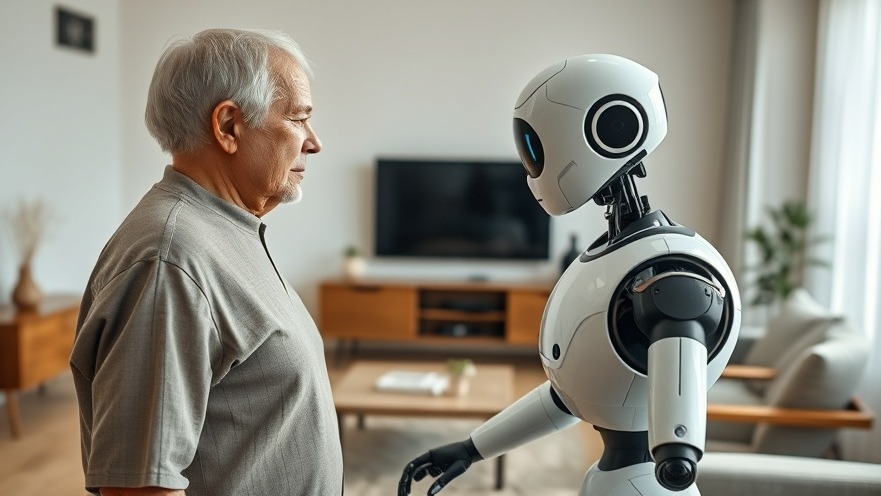
Transforming Care for Alzheimer's Patients: The Role of AI Robotics
The integration of AI-driven robotics into elder care is not just a concept but a transformative approach setting the stage for enhanced support for older adults living with Alzheimer's disease. A groundbreaking project at Case Western Reserve University seeks to pioneer these advancements through the development of a robot named Ruyi, which stands to redefine the caregiving landscape.
Ruyi: The Robot Helping Seniors Navigate Daily Life
At approximately 3 feet tall, Ruyi is designed to be more than just a robotic assistant; it embodies companionship while assisting seniors in their daily routines. Equipped with state-of-the-art sensors and AI-driven mobility features, Ruyi aims to engage with residents at Judson Senior Living in Cleveland. By connecting with home technologies like thermostats and the internet, this AI robot ensures timely updates for caregivers on the health and comfort of seniors.
Multi-Phased Research Approach for Comprehensive Insights
The research is structured into three crucial phases to fully assess Ruyi's viability and impact:
Resident and Family Acceptability: Focus groups involving residents and caregivers will evaluate attitudes toward robotic technology in elder care.
Technical Feature Validation: The ability of Ruyi to monitor and interact based on its design will be critically assessed, focusing on mobility, posture monitoring, and language interaction.
Staff and Management Attitudes: Insights will be gathered from staff to evaluate the long-term integration of Ruyi as a regular companion and caregiver assistant.
As Philip Cola, a professor involved in the study, notes, the core goal is sustainable caregiving solutions that enhance individual empowerment while improving overall healthcare management.
Understanding the Future of Elder Care
This pioneering work raises essential questions about the future of elder care and the role of technology in meeting the growing challenges of dementia and Alzheimer's disease. The project's co-principal investigator, Peter Whitehouse, emphasizes the importance of designing solutions that genuinely meet the needs of older adults and their caregivers.
The Emotional and Human Element of AI in Caregiving
While the technical prowess of Ruyi is impressive, the emotional element of caregiving cannot be overlooked. With cognitive decline, consistent support and companionship becomes paramount. AI technology like Ruyi can effectively bridge the gap, fostering a sense of independence and comfort for seniors, thereby alleviating some of the caregiver's burdens.
Ethical Considerations and Human-Centered AI
The integration of AI into healthcare prompts discussions about ethics and human-centered design. By ensuring that technology serves the emotional and physical needs of patients, researchers are addressing not just the healthcare delivery model but also the patient's overall quality of life.
Community Insights: Listening to the Voices of Caregivers
Engaging families, caregivers, and healthcare professionals is critical in refining AI technology for elder care. By collecting diverse opinions, the research team aims to tailor Ruyi's functionalities to be as symbiotic as possible with human caretaker approaches.
Anticipating Future Developments in Elder Care
The project serves as a precursor to potential widespread acceptance and integration of AI-driven robotics in healthcare settings. With the public’s growing familiarity with technological solutions due to the COVID-19 pandemic, there may be greater openness to viewing robots not merely as machines but as valuable companions and helpers.
A Call to Action for Healthcare Practitioners
As a health practitioner, it’s essential to stay informed about how technology is evolving within elder care. Encouraging discussions on implementing AI-driven solutions can lay the groundwork for a revolution in caregiving practices. Constantly evaluate how your practice can adapt to these changes and potentially embrace innovations like Ruyi. Stay ahead; the future of elder care is here, and it is collaborative.
 Add Row
Add Row  Add
Add 




Write A Comment